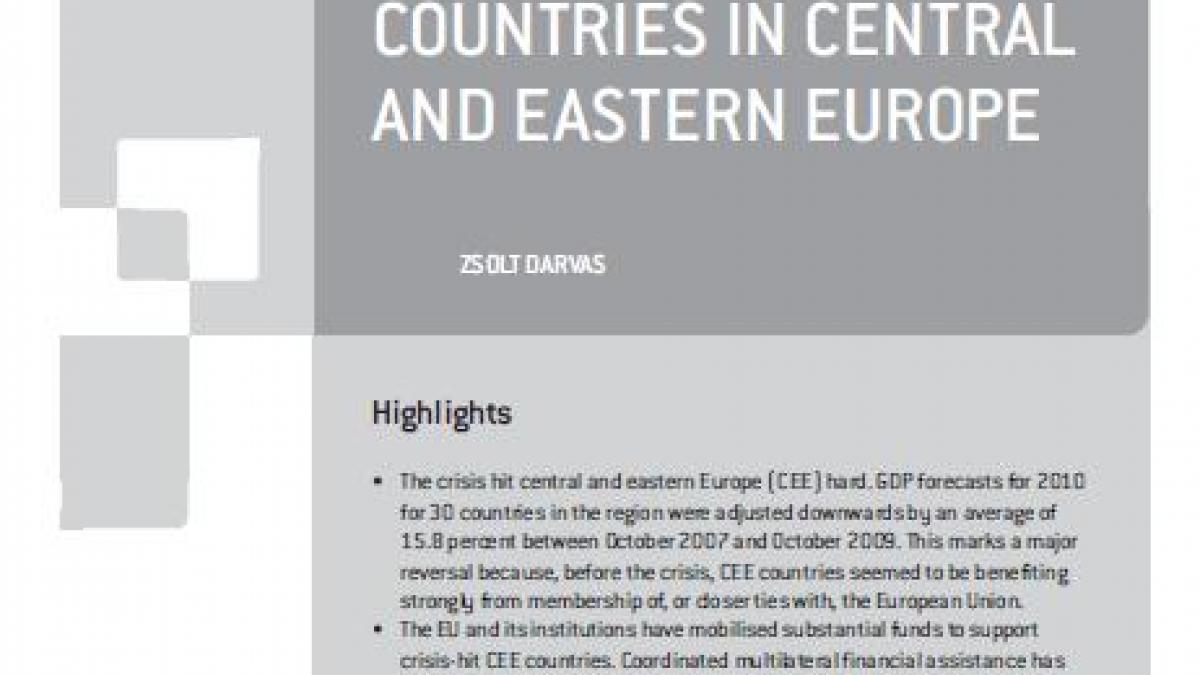The EU's Role in Supporting Crisis-Hit Countries in Central and Eastern Europe

The crisis has hit central and eastern European countries harder than other regions of the world. In this policy contribution Resident Scholar Zsolt Darvas looks at the role of the EU and its institutions in supporting crisis-hit CEE countries; the stabilising effects of the EUs coordinated multilateral financial assistance; and the commitment shown by Western European banks to the region. However Darvas argues that there were certain actions, or failures to act, on the part of EU institutions and governments, that have amplified the effects on CEE countries of the crisis. The European Central Bank has given little direct support to non-euro-area countries, and the EU has done little for EU neighbourhood countries. Meanwhile, euro-area membership has shielded from the crisis some countries with worse fundamentals than certain CEE countries.



